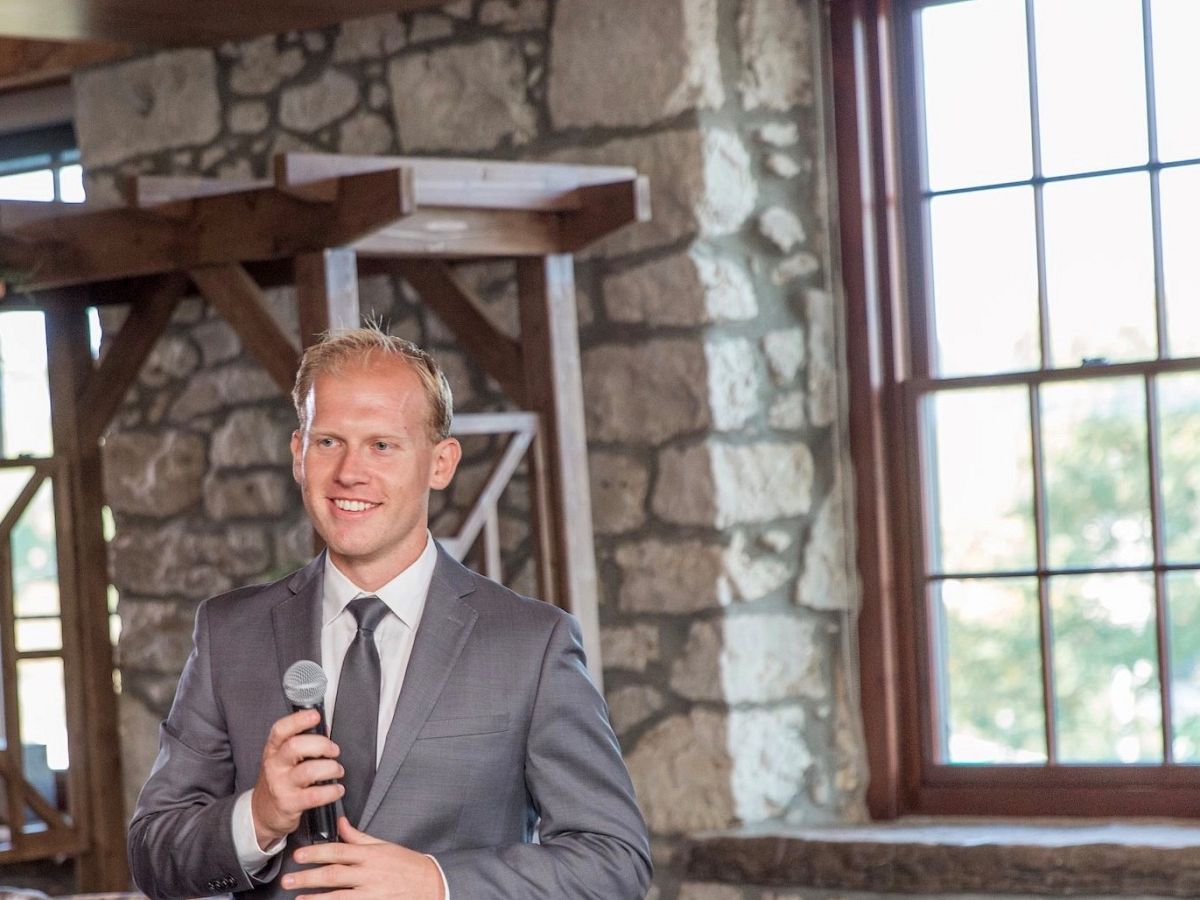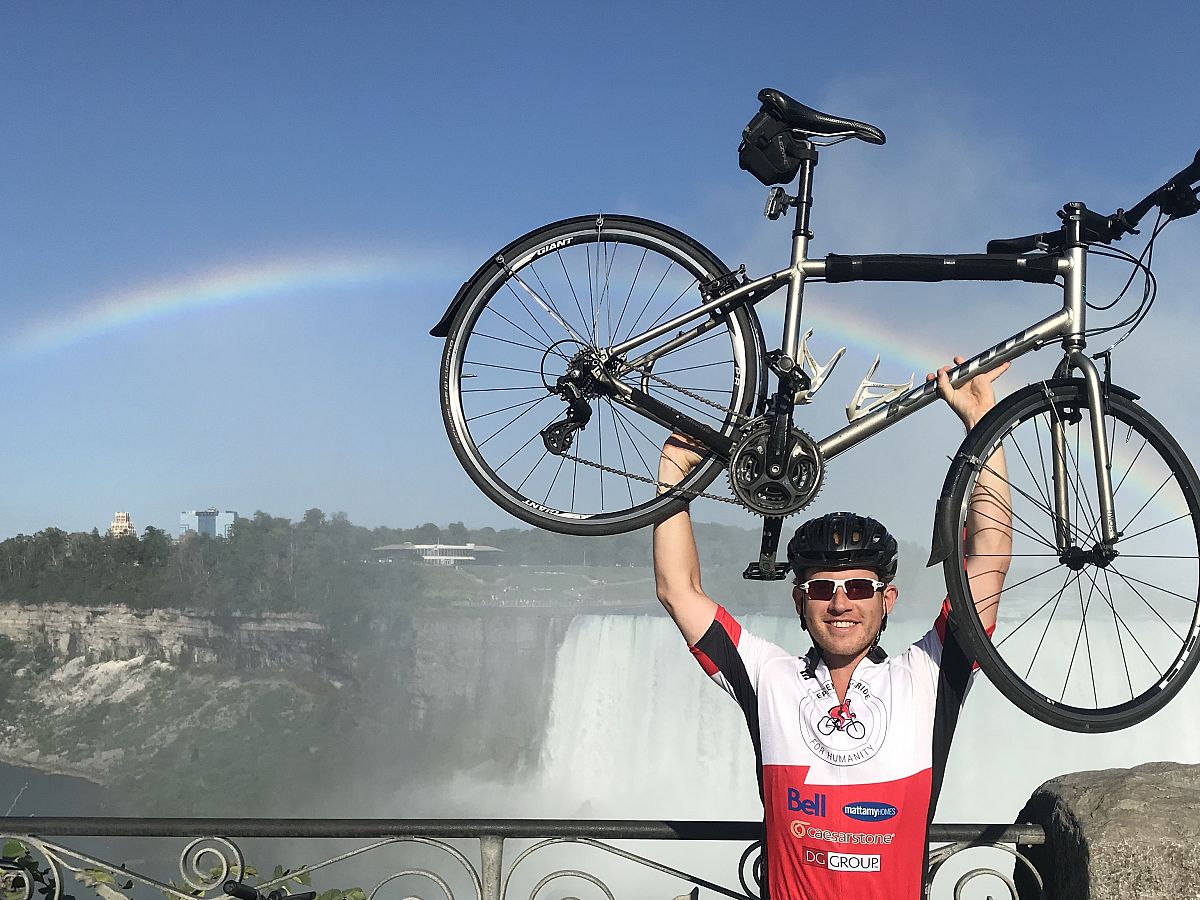In this edition we find out more about Patrick Jachyra, Assistant Professor in our Department of Sport & Exercise Sciences.
Patrick joined Durham from Toronto, Canada. He is also an Affiliate Scientist at the Centre for Addiction and Mental Health and a visiting fellow in Australia in the Faculty of Medicine at the University of New South Wales.
Patrick’s research seeks to understand how to optimally support the health, well-being and thriving of neurodivergent people, such as autistic people. The research often is co-produced with autistic people to ensure that government policies, clinical guidelines, and rehabilitation practices are reflective of their everyday lives, interests, needs and abilities.

Dr Patrick Jachyra giving a talk
Patrick’s days rarely look the same, which is one of his favourite things. Some days he is running research projects based in the UK, and meeting with collaborators in Canada, Belgium, and Australia to advise and conduct research projects. On others, he is in a gymnasium working together with teachers on how to support the physical activity and mental health of neurodivergent students, and meeting with charities in the UK which are running programmes in the community for neurodivergent people.
As well as teaching Advanced Sport and Exercise Psychology and Contemporary Research Methods for second year students, Patrick spends his time attending University committee meetings, and mentoring dissertation and PGR students conducting their research. Outside of work, he speaks to media about research and various health issues, speaking on podcasts and delivering webinars to reach as many people as possible with scientific knowledge. Other times, he is liaising with our communications team to share research findings and participate in awareness raising events such as Celebrating Mental Health Awareness Week.
Dialogue asked him about a typical day.

Niagara Falls
Patrick’s day
6.30am: Wake up, coffee and go outside for a morning walk.
7.30am: Meeting with colleagues at the University of New South Wales, Australia to discuss a research project, plan next steps.
9am: Emails and follow-up on action items.
10am: Teach or mark undergraduate summative assignments.
11am: Check in with PGR students, progress, next steps.
1pm: Lunch Break
1.30pm: Work on a research paper examining autistic women’s experiences with physical activity.
4pm: Grading undergraduate modules.
5pm: Meeting with colleagues in Toronto on two research projects in relation to mental health with neurodivergent people.
More about Patrick
What do you enjoy about your role?
The many different roles that I’m able to undertake is what I enjoy most. At times, in a single day, I’m a researcher, educator, advisor on government policy locally, nationally, and internationally, and advancing the internationalisation of Durham University on a global stage. I also enjoy mentoring and supervising students, working to support the next generation of researchers, teachers, healthcare professionals, among many other professions our talented students go into. This is one of the most rewarding parts of my role, with the hope of inspiring students to be the change they wish to see in the world.
What are you most proud of?
In Toronto I founded and directed the Extraordinary Youth Council which is a weekly social group on Friday evenings for neurodivergent youth and young people. The programme included physical activity, socialising with peers, and a cooking component which was led by the participants. It also included outings across the city, along with guests coming to the programme. We started with no budget and four participants per week, and I was able to grow the programme to 50 participants per week, with a long-term funding commitment. This funding source allowed me to also hire a staff member who was neurodivergent to support the programme which was extremely rewarding to be able to do so.
The work was recognised by numerous awards and recognitions, which included the University of Toronto Awards of Excellence, the most prestigious award at the university. This programme is still running, and it was amazing to see the impact it has on neurodivergent people and their families, with participants driving up to two hours to participate each week. I am hoping to set something similar up here in the North East in the near future.
What’s the best bit of advice you have been given and that you would give?
The best bit of advice I was given came from my PhD supervisor who encouraged me not to be afraid of failing in science, and that the word fail stands for: first attempt in learning. That has inspired me ever since. The advice I would give is to be curious, ask questions, and think outside of traditional ways of knowing, doing, and thinking as innovation rarely happens by doing the same thing as everyone else.
How do you look after your mental health?
I try to practice what I share with my students on how it is important to have a toolbox that can support mental health. For me, that includes getting in some sort of movement each day, sleep, speaking with friends, family both within and beyond the UK, and trying to give back to the community. The combination of each of these all have a greater cumulative benefit, compared to if we were going to deploy each of these on their own, in isolation.
What is your favourite food?
That is a tough one, I love food and especially desserts. A few global cuisines that I adore include Mexican, Jamaican, Japanese, Polish and Indian cuisine.
Where has been your best holiday?
Japan, from hiking Mt Fuji overnight to see the sunrise, being immersed in the history of Hiroshima, the epic food, the hustle and bustle of Tokyo, and then staying in a remote village in a traditional Japanese house called a minka, I always have fond memories of Japan.
What are your hobbies?
Cycling, being outdoors, hiking, travelling, music, photography and playing indoor ball hockey as part of Ball Hockey UK, with local and national tournaments. I’ve cycled from Toronto to Niagara Falls twice to fundraise money for paediatric cancer research. I would like to complete the Sea-to-Sea ride one day, which starts on the West Coast of Cumbria, across the Lake District, through the Pennines, and ends in Tynemouth.
Find out more
